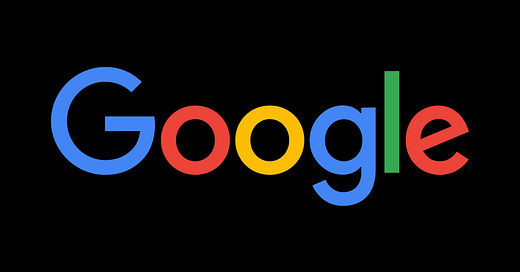#167 Google Engaged In Illegal Practices To Preserve Its Search Engine Monopoly
Fresh & Hot curated AI happenings in one snack. Never miss a byte 🍔
This snack byte will take approx 4 minutes to consume.
Google Engaged In Illegal Practices To Preserve Its Search Engine Monopoly
A US federal judge has determined that Google engaged in illegal practices to maintain its search engine monopoly, delivering a major antitrust victory to the Justice Department's efforts to regulate Silicon Valley tech giants.
Google, responsible for about 90% of global internet searches, used its dominant market position to eliminate competition, according to U.S. District Judge Amit P. Mehta in Washington, D.C.
"Google is a monopolist, and it has acted as one to maintain its monopoly," Mehta wrote in his 276-page ruling released on Monday. He also criticized the company for destroying internal messages that could have been relevant to the case.
Mehta supported the Justice Department and 38 states and territories' argument that Google suppressed competition by paying billions to web browser operators and phone manufacturers to make its search engine the default. This allowed Google to maintain its lead in the sponsored text advertising market that accompanies search results.
Kent Walker, President of Global Affairs at Google's parent company Alphabet, announced the company's intention to appeal the decision. He stated, "This decision recognizes that Google offers the best search engine, but concludes that we shouldn’t be allowed to make it easily available." Walker emphasized the company's focus on user-friendly products.
Jonathan Kanter, the Justice Department's antitrust chief, hailed the decision as paving the way for future innovation and ensuring access to information for all Americans.
Mehta oversaw a 10-week non-jury trial last fall, featuring testimony from Alphabet CEO Sundar Pichai and Microsoft CEO Satya Nadella. He is expected to determine what measures should be taken to restore competition, which could involve further court hearings.
The judge was critical of Google's automatic deletion of chat messages after 24 hours, stating he was "taken aback by the lengths to which Google goes to avoid creating a paper trail for regulators and litigants." However, he did not impose the government's requested sanctions, as they did not affect his assessment of Google's liability.
Google argued that it had disclosed its auto-erase policy years earlier. The appeal process could extend the resolution of the case by several years, potentially concluding with a settlement or final judgment.
Mehta's ruling may compel Google to alter its business practices amid growing scrutiny at home and abroad. The European Union is also investigating Google's app store practices, and the company faces another antitrust trial in September concerning its digital advertising monopoly.
"This is a pivotal moment for efforts to control big tech," said Rebecca Haw Allensworth, an antitrust professor at Vanderbilt University Law School. She suggested that Mehta might issue an injunction against Google's search deals or require users to choose their search engine, rather than defaulting to one that paid for the position.
The judge might also restrict Google's payments for prime placement on devices like Apple's iPhones. In 2022, Google paid Apple $20 billion for default status, according to court documents.
Alphabet's shares dropped nearly 5% on Monday, part of a broader selloff in tech stocks.
The case against Google dates back to October 2020, initiated by the Justice Department during the Trump administration. A bipartisan group of state attorneys general also filed suit, leading to the consolidation of the cases.
This case is one of several antitrust lawsuits against major tech companies, following criticism of U.S. regulators for not sufficiently curbing their dominance. The ruling may bolster ongoing cases against Apple, Amazon, and Meta Platforms.
Google is also awaiting a California judge's decision on changes to its app store business, following a lawsuit by Fortnite creator Epic Games. Google intends to appeal.
The Biden administration's Justice Department has prioritized aggressive action against dominant firms, and Kanter has criticized the concentration of power among a few tech companies.
Another antitrust lawsuit against Google, focusing on its ad technology, is set for trial on September 9 in Virginia. This case alleges that Google has an illegal monopoly on tools in the $250 billion digital-ad market, which Google has denied.
In March, Kanter accused Apple of unlawfully locking consumers into its iPhone ecosystem, a claim Apple disputes. The Federal Trade Commission, sharing antitrust responsibilities with the Justice Department, is pursuing a lawsuit to unwind Meta's acquisitions of Instagram and WhatsApp, arguing that these moves were meant to eliminate competition.
Meta has denied these allegations. Additionally, the FTC sued Amazon, claiming it uses its monopoly power to keep prices high, which Amazon also has denied.



